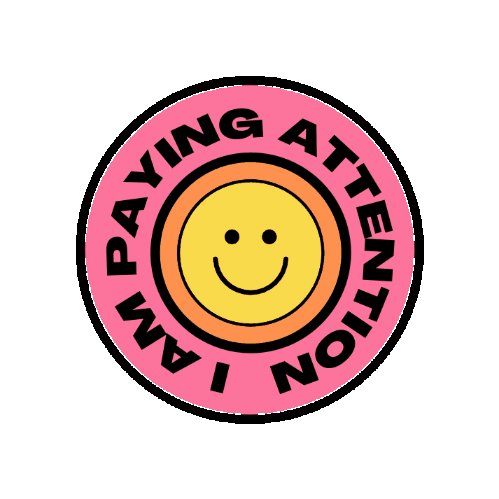My ADHD Journey
Picture this: We’re in the middle of a global pandemic and the first lockdown is lifted. My wife and I make plans to see our friend who we haven’t seen in a while. It’s a lovely sunny day and we’re sat in a park catching up.
I’m talking at 100 miles a hour, interrupting, getting over-excited and over-sharing. My friend deals with this really well…she’s used to it! But my wife has never seen me quite THAT hyper and it takes her aback. It makes her do some research into something she’s always suspected.
I’ve had ‘quirks’ my entire life and just put it down to being a bit annoying.
Now, this wasn’t a new thing. I’ve had ‘quirks’ my entire life and just put it down to being a bit annoying, or having something wrong with me, but not necessarily knowing or understanding what. I work in mental health and wellbeing so I considered that perhaps I had a form of Obsessive Compulsive Disorder (OCD) or mild Bipolar, but no resources or information I knew or found quite covered what I was experiencing.
After my Wife pointed out how I was acting that day and sat down with me to express her thoughts that I might have ADHD, I - in classic ADHD style – researched like a woman possessed. Everything started to fall into place. I wasn’t just reading about ADHD, I was reading about myself. I can’t tell you the relief that brought or the number of lightbulb moments I experienced (and still do experience) when exploring the signs and symptoms, particularly in women.
The signs are all there and always have been, in particular:
Obsessing and hyperfocus
Impulsivity
Continually starting new tasks without finishing old ones
Struggling in conversations with turn-taking, interrupting and oversharing
Making silly mistakes
Being easily distracted
Constantly losing and forgetting things
Constantly finding (and dropping) new hobbies
Emotional dysregulation (poor ability to manage emotional responses such as sadness and anger)
Sensory overload in particularly busy or noisy environments (I literally can’t stand it if my wife is watch a video on her phone while the TV is on, or if I’m in a tunnel with everyone’s voices echoing around)
…it’s all there and more!
Where these things there when I was a child (a key indicator of ADHD) – I don’t know, I was too young to remember. But I do remember struggling with things like revision, meaning I didn’t get the grades I was expected to get. I also constantly started and finished new hobbies, swapped and changed playing different instruments, and was very outspoken.
I have a brother with severe learning disabilities and so my minor symptoms may not have been noticed as much as they would otherwise – my parents wouldn’t have thought anything about these nuances I had and their focus was needed elsewhere. My parents were surprised when I explained my thoughts to them last year, but they are supportive and can now see those traits for what they are - symptoms!
I really feel my discovery of ADHD as an adult means all these things I do finally have a reason, and as such, I feel less guilty for doing them. My brain just doesn’t work the same as someone who is neurotypical, and that’s OK!
After learning more and understanding the huge crossover between neurodiversity and mental health, it became apparent that my diagnosis of depression a year or so earlier could have been a misdiagnosis, or it least not the whole picture.
There’s a whole grey area where ADHD, Anxiety and Depression overlap. Personally, I can’t confidently say that I don’t have depression, but I am 100% sure I have ADHD and some of the symptoms can present in very similar ways, such as frequently feeling anxious and restless, fatigue and having trouble paying attention. Sometimes it can be near impossible to separate one from the other.
I first contacted my GP in July 2020 and I felt listened to and heard. I went into it feeling slightly manic and extremely anxious, but to my relief I was heard and respected. I had done several tests online so I was armed with results, and also completed the GPs test, which indicated I have moderate ADHD. The GP referred me via the local mental health team although I was warned there was an extremely long wait (as long as 18-24 months). She initially upped my anti-depressant medication as this helped with some of the milder symptoms, at least in the short-term.
Waiting, patience and chasing is no mean feat for someone with ADHD.
When I discovered through I Am Paying Attention that you can choose to be referred to Psychiatry UK through your GP with significantly lower referral times, I was on it. My second GP appointment was better than the first – I spoke to a doctor specialising in mental health and she fully understood and requested the referral. I’m still chasing, but I feel like I might be getting somewhere.
Learning about my ADHD has been empowering for me, if a little overwhelming. Just like my sexuality and my mental health, I am happy to talk about my ADHD openly and honestly, whether that’s to friends, in job interviews or in sharing my experience in this way. I want to be able to contribute to breaking down stigma and normalising conversation around neurodiversity and mental health. I’m a neurodiverse lesbian with potential depression (and some other invisible illnesses which are for another time), and I’m happy to shout about it. I want everyone to be able to feel that way, and to be heard, valued and supported.
I haven’t got it all figured out yet, but I’m learning and really looking forward to moving towards the diagnosis I deserve.
